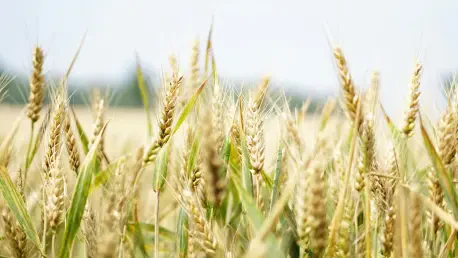Nigeria stands at a critical crossroads as it battles a severe food crisis characterized by skyrocketing prices and pervasive hunger that threatens the well-being of millions across the nation. The Federal Government’s recent decision to grant import licenses for grains such as rice has emerged as a polarizing strategy aimed at curbing the immediate hardship faced by the population. While the intention behind this policy is to provide swift relief by making food more affordable, it has sparked intense debate among agricultural stakeholders, policymakers, and experts. The central dilemma lies in weighing the benefits of short-term hunger alleviation against the potential long-term damage to local farmers who are pivotal to the nation’s food security. This article explores the multifaceted implications of this controversial move, delving into the arguments for and against grain imports, the systemic challenges facing the agricultural sector, and the broader socioeconomic consequences. By examining diverse perspectives, the goal is to shed light on whether this policy serves as a lifeline or a setback for Nigeria’s future.
Immediate Relief vs. Lasting Consequences
The argument in favor of grain imports hinges on the urgent need to address a food crisis that has left many Nigerians struggling to afford basic staples. Supporters, including certain government officials and agricultural analysts, contend that importing grains offers a rapid solution to stabilize prices and ensure access to food during a period of acute economic hardship. With public unrest fueled by escalating costs, the policy is seen as a pragmatic step to prevent further deterioration of living conditions. Proponents emphasize that while building robust local production remains the ultimate goal, the immediacy of hunger demands temporary measures to bridge the gap. This perspective prioritizes consumer relief, arguing that cheaper imported grains can ease the burden on households until more sustainable domestic solutions are implemented. The focus here is on averting a humanitarian disaster, even if it means relying on foreign supplies for the time being.
On the flip side, the policy’s critics highlight the severe risks it poses to local farmers and the nation’s long-term agricultural stability. Agricultural economists and rural producers warn that flooding the market with cheaper imported grains has already led to a sharp decline in local prices, rendering farming unprofitable for many. The financial strain is compounded by soaring costs of inputs like fertilizer, which have become prohibitively expensive. As a result, numerous farmers face the grim prospect of abandoning their trade, unable to recover their investments or sustain their livelihoods. This economic fallout not only jeopardizes individual households but also undermines Nigeria’s broader aspirations for food self-sufficiency. Critics argue that while imports may offer a quick fix, they erode the foundation of domestic agriculture, creating a dangerous precedent that could deepen dependency on foreign food sources and leave the country vulnerable to future supply shocks.
Systemic Barriers in Nigerian Agriculture
Beyond the immediate debate over imports, deeper systemic issues plague Nigeria’s agricultural sector, rendering quick fixes like grain imports insufficient for lasting change. Food inflation is driven by a complex web of factors, including dilapidated infrastructure, exorbitant logistics costs, and persistent insecurity in key farming regions. These challenges inflate the cost of bringing produce to market, making local goods less competitive even without imported alternatives. Experts caution that relying on foreign grains fails to address these root causes and risks fostering a cycle of dependency that weakens domestic resilience. A more comprehensive approach, they argue, must tackle these structural barriers to create an environment where local farmers can thrive. Without such reforms, temporary relief measures may provide short-term respite but leave the sector ill-equipped to handle recurring crises.
Another critical dimension of the problem lies in market distortions and accountability failures that exacerbate food scarcity and price hikes. Instances of hoarding by some farmers and middlemen have been cited as contributing to artificial shortages, further driving up costs for consumers. Additionally, past agricultural support programs have often been marred by mismanagement, with funds intended for farmers diverted to unrelated ventures. This history of inefficiency has eroded trust in local systems, providing a rationale for the government’s turn to imports as a stopgap. However, addressing these issues requires stronger oversight and mechanisms to ensure transparency in agricultural interventions. Simply increasing supply through imports sidesteps the need for reforms that would prevent hoarding, improve market access, and rebuild confidence in domestic production. A balanced strategy must prioritize systemic change alongside immediate relief to avoid perpetuating the same vulnerabilities.
Broader Impacts on Society and Economy
The repercussions of the grain import policy extend far beyond the agricultural sector, influencing social stability and economic development across Nigeria. As farming becomes less viable due to depressed prices and high input costs, rural communities face diminishing employment opportunities. This economic decline could trigger a wave of migration as youth and laborers seek better prospects in urban centers, placing immense pressure on already overburdened city infrastructure. Such an influx often correlates with heightened poverty and insecurity, creating a ripple effect that destabilizes both rural and urban areas. The potential for this demographic shift underscores the interconnectedness of agricultural policy with broader national challenges, highlighting the need for solutions that preserve rural livelihoods while addressing immediate food access concerns. Ignoring these wider impacts risks exacerbating existing inequalities and social tensions.
Equally concerning is the apparent contradiction between the government’s stated commitment to economic diversification through agriculture and its current reliance on imports. For years, successive administrations have championed local production and backward integration as cornerstones of national development, aiming to reduce dependency on foreign goods. Yet, the decision to prioritize imported grains appears to undermine these long-term objectives, raising questions about the consistency of policy direction. Critics argue that this approach sends a discouraging signal to local farmers who have invested in domestic agriculture, potentially stalling progress toward self-reliance. To reconcile these conflicting priorities, there is a pressing need for policies that support local producers through subsidies, access to modern equipment, and guaranteed minimum prices for crops. Without such measures, the pursuit of short-term relief may come at the expense of sustainable economic growth and food security.
Navigating Toward Sustainable Solutions
Reflecting on the contentious grain import policy, it’s evident that Nigeria faces a complex challenge in balancing urgent hunger relief with the preservation of its agricultural backbone. The decision to allow cheaper foreign grains into the market provided a temporary buffer against soaring food prices, yet it inflicted significant hardship on local farmers already battling systemic obstacles. Critics rightfully point out the long-term dangers of dependency and the erosion of domestic production, while supporters defend the move as a necessary response to an immediate crisis. This debate illuminates the intricate interplay between short-term needs and enduring goals, revealing a landscape fraught with trade-offs.
Looking ahead, the path to resolution lies in crafting a multifaceted strategy that integrates immediate relief with sustainable reforms. Policymakers should consider pairing import measures with robust support for local farmers, such as subsidies for inputs and price guarantees to stabilize incomes. Addressing systemic issues like infrastructure deficits and insecurity in farming regions remains paramount to reducing production costs and enhancing market access. Declaring a national focus on food security could mobilize resources and galvanize public-private partnerships to rebuild trust and capacity in the sector. Ultimately, the lesson from this policy debate is that Nigeria’s future hinges on empowering its farmers, ensuring that temporary fixes do not derail the journey toward self-reliance and resilience in food production.









